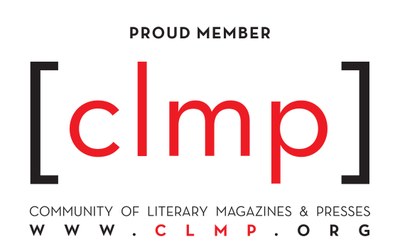About

Miracle Monocle is an online journal of innovative literary and visual art. Published bi-annually, the journal features poems, short stories, literary nonfiction, and a broad range of experimental works. We pride ourselves on serving as a home for flash and micro fictions of all varieties, as well as works with genre indeterminacies, fresh collaborations, and re-invigorations of more traditional forms.
The journal was founded in 2009 by Jacob Thomas Berns and Matthew Crady and was re-established and renewed by Ryan Ridge in 2015. Faculty Editor Sarah Anne Strickley has been at the helm since 2017 and has overseen a period of rapid growth and recognition for the journal. Miracle Monocle is made possible by funding from the University of Louisville's Department of English and Program in Creative Writing. We also depend on the support of generous donors like you. Visit our hallowed Wall of Donors to find out how you can support our growth.
Miracle Monocle has been nationally recognized for the high quality of its content: it was the 2018 recipient of the National Program Director's Prize from the Association of Writers and Writing Programs and work first appearing in Miracle Monocle have been anthologized in The Best Microfiction, New Stories from the Midwest, and elsewhere. The journal has showcased the work of renowned writers such as Lydia Davis, Chris Offutt, Lawrence Ferlinghetti, Kiki Petrosino, Dan Beachy-Quick, Chelsea Minnis, TC Tolbert, Douglas Kearney, and many others—alongside emerging talents and debut writers. We strive to make every issue of Miracle Monocle a celebration of the eclectic variety made possible only by inclusionary editing practices.
The journal is staffed by a team of graduate and undergraduate editorial interns, who earn course credit for assisting in the production of our issues. We also staff editors with previous experience on the editorial team; our contributing editors are deeply valued members of the staff.
Previously unpublished and emerging writers are highly encouraged to submit. Please visit our archives to sample issues of the journal.
For those curious about our selection process, we recommend reading our Code of Editorial Conduct—a living document that makes our priorities and principles public. We'd also like to direct you to this recent interview with our faculty editor in Lit Mag News. Duotrope's interview with Dr. Strickley might also be a useful resource. We strive to maintain an author-forward publishing model and believe that editorial transparency builds trust and community.
We support our writers by nominating them for prizes, promoting their accomplishments on social media, and reviewing their latest books. If you've published with the journal and would like us to review your new book, please reach out. We're also game to interview you about your work.
There are many different ways to follow Miracle Monocle online: Bluesky handle: @miraclemonocle.bsky.social; X handle: @miracle_monocle; Facebook handle: @miraclemonocle; Instagram handle: @miraclemonocle. And now listen to the Miracle Monocle podcast on Soundcloud. The journal hosts open mic readings on the campus of the University of Louisville, tables at literary events, and stages a large-scale launch party with the culmination of each issue cycle.
The Miracle Monocle staff office is located on the University of Louisville’s Belknap campus. Please send all queries to our e-mail address: miraclemonocle@gmail.com. Please send all other correspondence, including review copies, to the following mailing address:
Miracle Monocle
c/o Dr. Sarah Anne Strickley
Department of English
Bingham Humanities 315
2216 S. 1st Street
University of Louisville
Louisville, Kentucky 40292
Miracle Monocle is now a proud member of CLMP. Visit our listing online to learn more about us.

Interested in joining the staff of Miracle Monocle? Students majoring in English at the University of Louisville may apply for consideration to the journal's Spring internship program by completing an online interest form. In the Fall semester, students are invited to enroll in ENGL 404: Editing, Publishing, and Promoting a Literary Journal. Students may enroll in both the internship and the traditional course and may do so in any sequence they prefer. Once students have served on the staff for a period of at least one semester, they are entitled to become candidates for consideration as contributing editors. The staff is not open to candidates outside the university.
